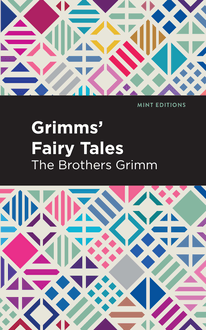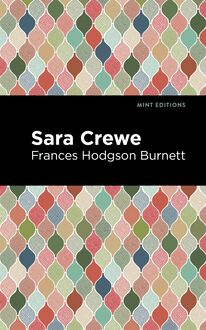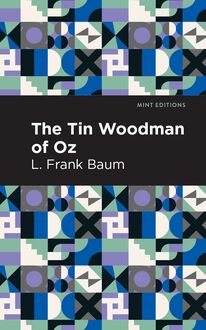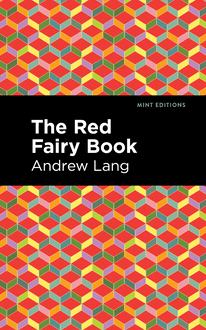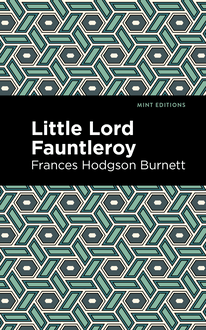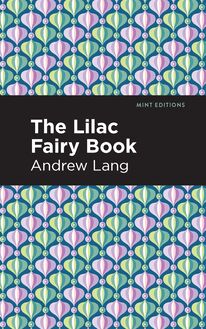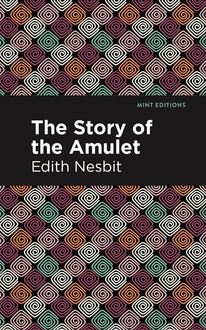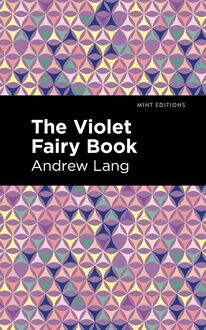-
 Univers
Univers
-
 Ebooks
Ebooks
-
 Livres audio
Livres audio
-
 Presse
Presse
-
 Podcasts
Podcasts
-
 BD
BD
-
 Documents
Documents
-
- Cours
- Révisions
- Ressources pédagogiques
- Sciences de l’éducation
- Manuels scolaires
- Langues
- Travaux de classe
- Annales de BEP
- Etudes supérieures
- Maternelle et primaire
- Fiches de lecture
- Orientation scolaire
- Méthodologie
- Corrigés de devoir
- Annales d’examens et concours
- Annales du bac
- Annales du brevet
- Rapports de stage
La lecture à portée de main
Vous pourrez modifier la taille du texte de cet ouvrage
Découvre YouScribe en t'inscrivant gratuitement
Je m'inscrisDécouvre YouScribe en t'inscrivant gratuitement
Je m'inscrisEn savoir plus
Vous pourrez modifier la taille du texte de cet ouvrage
En savoir plus

Description
Adventures in Toyland (1897) is a children’s novel by Edith King Hall. The fifth of seven relatively unknown children’s novels by Edith King Hall is a quirky, fun, and incredibly original story for children and adults alike. Reminiscent of E. T. A. Hoffmann’s “The Nutcracker and the Mouse King,” Adventures in Toyland is an underappreciated classic from a master of Victorian fiction. “All sorts of toys were to be found in that toy-shop. It was truly a place to please any child! A little girl, who had come to stay there with her aunt—the owner of the shop—and her little cousin, was always to be found amongst the toys; she was forever picking up and admiring this one, stroking that one, nursing another. All her spare moments were spent in the shop.” While playing in her aunt’s toy shop, a young girl has a magical encounter with a mysterious Marionette, who informs her that the world of toys is just as real as the world of human beings. Given the chance to speak with the Marionette for two weeks—after which the toy will go silent forever—the young girl enjoys tales of conflict and adventure set in a wonderful kingdom of creatures and toys alike. From the tale of “The Rabbit and the Mouse” to the story of Belinda the wax doll and Jack, “the curly-headed Sailor-Boy,” Hall never ceases to astound. With a beautifully designed cover and professionally typeset manuscript, this edition of Edith King Hall’s Adventures in Toyland is a classic work of British children’s literature reimagined for modern readers.
Sujets
Informations
| Publié par | Mint Editions |
| Date de parution | 03 août 2021 |
| Nombre de lectures | 0 |
| EAN13 | 9781513297460 |
| Langue | English |
| Poids de l'ouvrage | 2 Mo |
Informations légales : prix de location à la page 0,0300€. Cette information est donnée uniquement à titre indicatif conformément à la législation en vigueur.
Extrait
A dventures in T oyland
E dith K ing H all
A dventures in T oyland was first published in 1900.
T his edition published by M int E ditions 2021.
ISBN 9781513295961 | E - ISBN 9781513297460
P ublished by M int E ditions®
minteditionbooks.com
P ublishing D irector: J ennifer N ewens
D esign & P roduction: R achel L opez M etzger
P roject M anager: M icaela C lark
T ypesetting: W estchester P ublishing S ervices
C ONTENTS I. A FTER THE S HUTTERS WERE U P II. T HE R ABBIT & THE M OUSE III. B ELINDA IV. T HE O FFICER & THE E LEPHANT V. T HE L ITTLE D ANCER VI. T HE H ANSOM D RIVER VII. P ROUD C LARIBELLE VIII. T HE G ROCER AND THE F ARTHING D OLL IX. T HE L AST P ERFORMANCE
I
A FTER THE S HUTTERS WERE U P
All sorts of toys were to be found in that toy-shop. It was truly a place to please any child! A little girl, who had come to stay there with her aunt—the owner of the shop—and her little cousin, was always to be found amongst the toys; she was forever picking up and admiring this one, stroking that one, nursing another. All her spare moments were spent in the shop.
It so happened one evening that she wandered in after the shutters were put up, and the place was deserted. She paused before the spot where she was accustomed to find her favorite doll, a little lady Marionette, who, when wound up, danced gayly in company with her partner, a very fine gentleman.
They were both very prettily dressed. The little lady Marionette wore a beautiful white silk dress brocaded with pink roses, whilst her partner had on a blue velvet coat, knee breeches, white silk stockings, and diamond shoe buckles. Their clothes were really very grand!
And they danced so gayly, too.
“Just as if they like dancing with each other!” the little girl once said to her aunt.
“You are a fanciful child, Molly,” answered the woman, laughing.
“All the same, I believe I am right,” replied the little girl.
This evening, however, they were not to be found in their accustomed place. The little platform on which they danced was there, but the dolls themselves were gone!
The little girl looked round the shop much bewildered.
“Where can they be?” she said.
At last she saw the little lady Marionette sitting on the right hand counter, with her back against the Noah’s Ark.
“Well, how funny!” exclaimed the little girl aloud. “How have you got there?”
“Walked, of course,” answered the little Marionette in a sweet little voice.
The little girl’s astonishment at this reply was very great. So great that it kept her silent.
“You seem rather surprised,” said the little Marionette. “Why?”
“Why, I never knew you could talk!” she exclaimed, recovering a little from her surprise. “Or any other toy, either,” she added.
“Life is full of surprises,” remarked the little Marionette; “especially in the toy-shop.”
“I wish you would tell me all about it,” said the little girl, becoming bolder. “If toys can walk and talk, why don’t children know it?”
“Because, although they have known many toys, yet they are very ignorant regarding their habits,” she answered. “T hat is the reason.”
“At the same time,” she continued, “as it is, generally speaking, only when mortals are not present that we can move and speak freely, this ignorance is, perhaps, partly excusable.”
“But how long will you be able to go on talking to me?”
“That I can’t tell you. I can only say that our power of talking to a Mortal—a power which comes but once in the lifetime of every toy—generally lasts from a fortnight to three weeks.”
The little girl clapped her hands.
“You will be able to talk to me, then, every day that I am here!” she exclaimed with pleasure. “I am only going to stay with my aunt and my cousin for twelve days longer.”
She paused a moment, then added:
“How I should like you to tell me some stories of toys—a new story every day, you know. Couldn’t you do that?”
The little Marionette looked doubtful.
“Before I attempt anything of the sort, I shall have to consult Father Christmas—the well-known and much-esteemed patriarch. As he is the Head of our Society, I should like to do nothing without his advice and sanction.”
The little girl sighed anxiously.
“I do hope he’ll say ‘yes’,” she said. “I want so much to hear stories of toys told by a toy.”
“I’ll do my best to please you,” said the little Marionette. “Come here at the same time tomorrow,—by yourself, for I can only speak before one Mortal at a time,—and I will see what I can do.”
“Thank you,” she said gratefully. “Please give my best love to Father Christmas; and tell him if he says ‘yes’ I will see that Auntie puts him at the very top of the Christmas tree.”
She turned to go, then paused and came back.
“I should just like to ask you one thing before I go,” she said. “Don’t you and your partner enjoy dancing together?”
The pink cheeks of the little lady seemed to grow a little pinker.
“Perhaps we do,” she replied.
“I thought so,” remarked her new friend with some satisfaction. “Good evening! I shall come again tomorrow at this same time.”
II
The next evening the little girl returned to the Noah’s Ark, where she found the little Marionette in the same position.
“Well!” she said eagerly.
“I have consulted Father Christmas,” answered the little Marionette. “He is of the opinion that I may, without harm, tell you tales of some of the toys. You shall therefore hear the most interesting stories I can remember.”
“That will be very nice,” said the little girl. “Will you begin at once?”
“At once,” she agreed, and began the story of “The Rabbit and the Mouse.”
T HE R ABBIT & THE M OUSE
The white Rabbit and the brown Mouse were both talented, though in different ways. The Rabbit’s talent showed itself in the precision and vigor with which he could beat a drum as he sat on his hind-legs; the Mouse in the swiftness and grace with which he could speed to and fro upon the counter.
Talking over the matter, they arrived at the conclusion that if they went up and down the counter together as a traveling-show they might turn a very pretty penny. The Rabbit was to display his musical talent, whilst the Mouse was to exhibit his powers of graceful movement.
The profits were to be equally divided. Such, at least, was the arrangement as understood ; but it was not a written agreement, which was a great mistake.
The reason, however, that the two partners omitted to be more business-like was this: the Rabbit trusted the Mouse, and the Mouse hoped to cheat the Rabbit. Not that anything of the sort was openly expressed, but each was quite well aware of his own view of the matter.
The two started off upon the most amiable terms, stopping at such places as they thought most likely to prove profitable: in front of the dolls’ houses; before the race-courses; by the shops. Then the Rabbit would announce loudly:
“I am a rare-bit from Wales, and the Mouse is a tit-bit from Ireland. We charge no fees for performing, but trust to your kind generosity.”
After this the Rabbit played the drum with great energy, whilst the Mouse ran up and down in the most nimble manner.
It was probably owing to a report which got abroad, to the effect that the performers were noble strangers, working in the cause of charity, that the success of the pair was so great. It was, indeed, wonderful, and in a short time the two had gained quite a little fortune.
It was the Mouse who collected the money. For purposes of his own, he persuaded the Rabbit to let him always take upon himself this duty. And his companion, who was rather stiff in the joints after sitting perfectly still upon his hind-legs for the length of time he was obliged to, was quite willing to let the Mouse do as he wished.
Not that he would have been willing to had he known the real facts of the case. For as you will understand by what I have said, the Mouse was acting towards him in the most dishonest fashion, in spite of his many fair words and speeches.
It was in this way that he plotted against his friend: As soon as a certain sum of money had been collected, the Mouse always suggested that he should go and invest it. To this the Rabbit never made any objection, having great faith in the Mouse as an animal with a good business head.
When the little rascal returned after a long absence, he had always a fine story to tell of the cleverness with which he had laid out the money, and of the fortune which would shortly be coming in. This was perfectly untrue. The Mouse was not investing a penny. On the contrary, he was hoarding it all up, and for his own benefit.
There was a certain Horse who lived some little way off in a luxurious stable. Here the Mouse was minded to pass his last years, so soon as he had made a sufficiently large fortune, or unless chance removed him from the toy-shop. But in order to carry out his plan, he would have to pay the Horse a large sum for the right of sharehold—since it was his stall he wished to share,—and also to get the warm, cosy corner he especially desired.
The Horse himself was not the noble creature nature had intended him to be. He was to the full as greedy as the Mouse, and was indeed his helper in the plot. It was to the Horse the little swindler always ran when he pretended that he was going to invest the money, and it was in his stall that it was hidden. By the end of the half-year the Horse and the Mouse calculated that they would have sufficient money to carry out their design; when they intended to add further to their wickedness by causing the Rabbit to be killed, in order to prevent his asking any tiresome questions.
Now, as the time drew near when the money, had it been invested, should have brought in some returns, the Rabbit began to talk of what he intended doing with his share.
“I think,” said he, “after I have supplied my own wants, I shall found a drum-scholarship for Musical Rabbits;” for he was a creature of a kind and generous nature, and truly devoted to the cause of art.
“A most excellent
-
 Univers
Univers
-
 Ebooks
Ebooks
-
 Livres audio
Livres audio
-
 Presse
Presse
-
 Podcasts
Podcasts
-
 BD
BD
-
 Documents
Documents
-
Jeunesse
-
Littérature
-
Ressources professionnelles
-
Santé et bien-être
-
Savoirs
-
Education
-
Loisirs et hobbies
-
Art, musique et cinéma
-
Actualité et débat de société
-
Jeunesse
-
Littérature
-
Ressources professionnelles
-
Santé et bien-être
-
Savoirs
-
Education
-
Loisirs et hobbies
-
Art, musique et cinéma
-
Actualité et débat de société
-
Actualités
-
Lifestyle
-
Presse jeunesse
-
Presse professionnelle
-
Pratique
-
Presse sportive
-
Presse internationale
-
Culture & Médias
-
Action et Aventures
-
Science-fiction et Fantasy
-
Société
-
Jeunesse
-
Littérature
-
Ressources professionnelles
-
Santé et bien-être
-
Savoirs
-
Education
-
Loisirs et hobbies
-
Art, musique et cinéma
-
Actualité et débat de société
- Cours
- Révisions
- Ressources pédagogiques
- Sciences de l’éducation
- Manuels scolaires
- Langues
- Travaux de classe
- Annales de BEP
- Etudes supérieures
- Maternelle et primaire
- Fiches de lecture
- Orientation scolaire
- Méthodologie
- Corrigés de devoir
- Annales d’examens et concours
- Annales du bac
- Annales du brevet
- Rapports de stage
